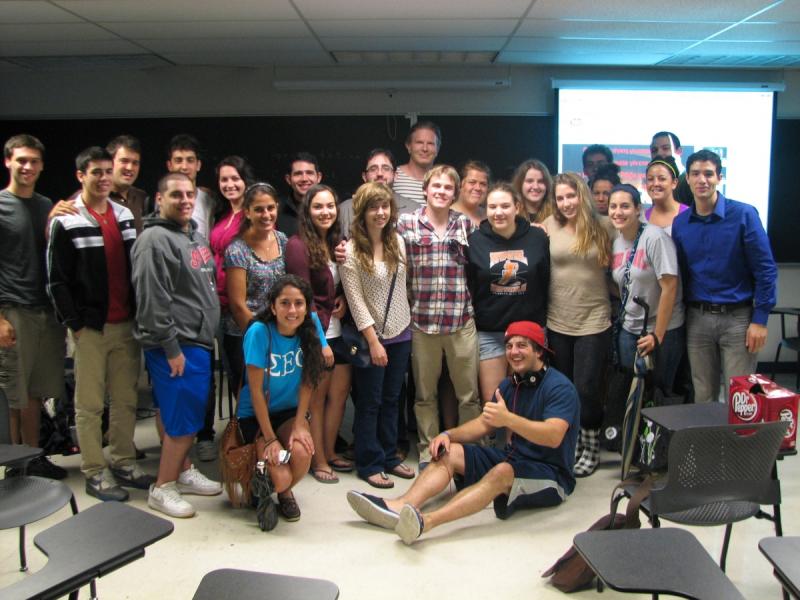Modern Greek Program
The Modern Greek program at The Ohio State University offers a comprehensive and systematic introduction to the Greek world of the last ten centuries, especially to its contemporary social reality and intellectual achievement. Through a wide range of undergraduate and graduate courses, it covers language, literature, and culture. Although the program provides a broad liberal arts education and research training, it places particular emphasis on literary studies, critical theory, cultural politics, and diaspora (especially Greek-American).

The program draws on the valuable expertise of its distinguished affiliated faculty. An active commitment to comparative, interdisciplinary, and methodological inquiry is evident in its diverse activities, from course offerings and graduate supervision to publications and conferences. The program is dedicated to the contextual study, both local and global, of contemporary Greek culture. Due to being housed within the Department of Classics, the Modern Greek program can also offer courses and supervise research in the entire history of Greek culture.
The Modern Greek program is an integrated part of the Department of Classics, which offers a Ph.D. degree in Greek and Latin and a variety of undergraduate majors and minors. The Department also has strong teaching and research ties to the Department of History, the Center for Folklore Studies, and the Department of Comparative Studies, which offer courses in Comparative Literature, Folklore, Ethnography, Religious Studies, and Cultural Studies.
University Resources
The Modern Greek program benefits from numerous university resources.
- Library Access
- Thompson Library: one of the largest U.S. research libraries with a sizable and expanding Modern Greek collection.
- Hilandar Research Collection: the world’s largest collection of medieval Slavic Cyrillic manuscripts on microform.
- Modern Greek Collection at the University of Cincinnati: one of the most comprehensive in the world.
- Center for Epigraphical and Palaeographical Studies: the only comprehensive research facility for the study of Greek and Latin inscriptions and manuscripts in the United States.
- Isthmia Excavations in Ancient Corinth: an active program of archaeological research, training/education, and publication centered on the ancient Sanctuary of Poseidon in Greece.
- Office of International Affairs: facilitates international experiences for students and faculty, supports academic programs and research, coordinates international partnerships, administers grants and scholarships for global engagement and contributes to enriching the Ohio State experience for the university’s international student and scholar population.
- Middle East Studies Center: promotes learner-centered teaching, scholarly exchange, and intercultural experience related to the Middle East.
- Center for Slavic and East European Studies: promotes the study of Central Europe, Eastern Europe, Eurasia, Russia, and Southeastern Europe and its languages at The Ohio State University (OSU), in the state of Ohio, in the Midwest, and beyond.
- Center for Languages, Literatures, and Cultures: connects and supports language learners and instructors by providing physical and virtual spaces, facilitating access to resources, investigating the creative potential of emerging media and technologies, and training best practices.
- Center for Medieval and Renaissance Studies: promotes the study of history, culture, society, technology, and the arts from late Antiquity to the early modern era.
- Mershon Center for Studies in International Security Studies: cultivates innovative research and engagement at the intersections of international, national, and human security challenges.
- Melton Center for Jewish Studies: develops, promotes, and supports the study, teaching, and research of Jewish studies by faculty and students at The Ohio State University.
